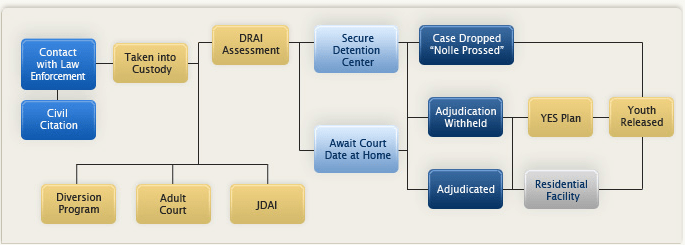If your child has been arrested, your child will appear before a Judge within 24 hours to determine whether the Child shall be taken into custody (“secure detention”) or released. This hearing is known as a detention hearing. The detention hearing is mostly controlled by a Detention Risk Assessment Instrument (“DRAI”) prepared by the Department of Juvenile Justice. At the detention hearing, the State Attorney and a representative for the Department of Juvenile Justice are present. The Judge determines whether there is probable cause of a crime and reviews the DRAI to determine whether the child should be held in secure detention, released on home detention, or straight released. Straight release means the Child will be released without any court-imposed conditions. Supervised release is similar to home detention, where the Child will be confined to his or her home with certain exceptions. Secure Detention is custody at a local Juvenile Detention Center.
The State Attorney has 21-30 days to commence what is called an Adjudicatory Hearing. The Adjudicatory Hearing is similar to an adult trial. Juvenile cases are tried by a Judge and are non-jury trials. After a trial, the case could result in a ‘Not Guilty’ and the Child is released, or the trial can result in the child being ‘Adjudicated’. If your child is adjudicated at the Adjudicatory Hearing and is committed to a program, your child can be held in secure detention for an additional 15 days pending a disposition hearing. The Disposition hearing is similar to a plea/sentencing hearing. Alternatively, the Court may proceed with sentencing and withhold adjudication. If the Child is placed on juvenile probation, the probation officer will meet with the Child to develop a YES plan. The YES plan allows the probation officer to establish meaningful goals and actions through collaborative efforts with the youth and family.
Does your Child have a pending Juvenile proceeding? Does someone you know have a pending juvenile proceeding? Contact our office today and Attorney Brandon Gans will be able to assist you.



Recent Comments